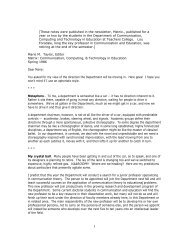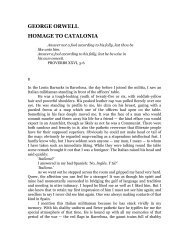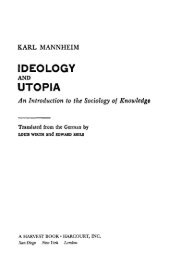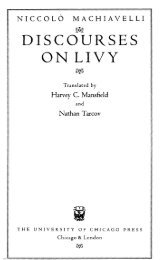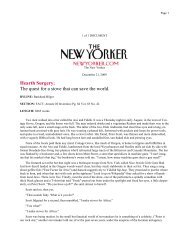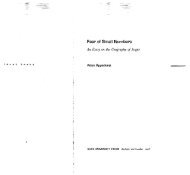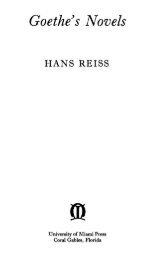THE REPUBLIC OF PLATO - Studyplace
THE REPUBLIC OF PLATO - Studyplace
THE REPUBLIC OF PLATO - Studyplace
You also want an ePaper? Increase the reach of your titles
YUMPU automatically turns print PDFs into web optimized ePapers that Google loves.
PREFACE<br />
Here, even if the double question-'renders what to what'-were<br />
reduced to normal English, the repetitions would still sound pedantic<br />
and clumsy; and the reader, as he toiled along, might well<br />
wonder why Plato has been upheld, in every age, as a master of<br />
elegant prose. 1<br />
It is a curious fact that in parts of the dialogue where the thought<br />
is most difficult-notably in chapter xxiv (the Line)-it is packed<br />
into the smallest number of words, so that some expansion is required.<br />
But in the main bulk of the work the style is (as the<br />
ancients said) 'copious'; and, since often a single Greek word can<br />
only be represented by two or three in English, the literal translator<br />
may easily find that the number of words he has used exceeds<br />
Plato's by 20 or 25 per cent. I have tried, by various means, to keep<br />
down this version to nearly the same length as the text. Only a<br />
few passages, chiefly in the earlier books, have been omitted altogether,<br />
for reasons given in the notes. Much more space has been<br />
saved by leaving out many of the formal expressions of assent<br />
interjected by Glaucon and Adeimantus, and thus allowing Socrates<br />
to advance one step in his argument in a single connected<br />
speech. This liberty has been taken sparingly in the first Part,<br />
where the company join in a genuine conversation; but, from the<br />
moment when the two brothers have opened their case against<br />
Justice in chapter v and Socrates begins his reply, the dialogue is<br />
in substance a continuous discourse, to which Glaucon and Adeimantus<br />
contribute very little. The convention of question and<br />
answer becomes formal and frequently tedious. Plato himself came<br />
near to abandoning it in his latest work, the Laws, where the<br />
Athenian lectures for pages together without interruption. I have<br />
not hesitated to spare the reader time and effort by omissions which<br />
the following passage (421 c, p. 112 of this version) may serve to<br />
illustrate :<br />
'I wonder whether you will agree on another point closely connected<br />
with that and concerned with the craftsmen. Is it not true that they<br />
also are spoilt,and turned into bad workmen by wealth and poverty<br />
alike<br />
1 It is fair to add that I have constantly consulted the Locb translation as a<br />
valuable clue to the construction of the Greek.<br />
vii



